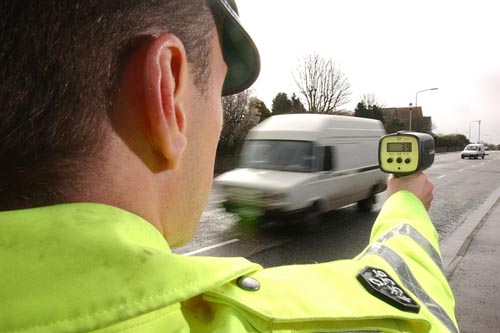THE main route between England and Scotland has seen the most speeders caught on mobile camera vans, Police figures have revealed.
More than 6,000 motorists were caught breaking the 70mph limit on the A74(M) over the past year.
Stretches of the busy route also accounted for half of the ten worst routes in Scotland for speeding offences detected by mobile camera vans last year.
The highest recorded speed on the route, which connects Glasgow to the English border at Gretna, was recorded at 125mph.
Last year the record for highest number of speeders caught by mobile camera vans was held by a stretch of the A9 near Dunblane, but the area is now covered by regular speed cameras.
Figures, secured through a Freedom of Information request, indicate that the fixed camera site with the most recorded offences was on the A90 near Stonehaven.
It caught 4,378 motorists over the limit, with one driver speeding at 122mph.

Road safety campaign group Brake were quick to criticise drivers exceeding the speed limit.
Spokesman Gary Rae said: “It’s shocking to see that so many drivers have a blatant disregard for speed limits and red lights on Scotland’s roads.
“These incredibly dangerous actions put their lives and the lives of others at risk.
“Brake fully supports the use of all speed camera as there is overwhelming evidence they are a highly effective way of reducing speeding, which is crucial in making our roads safer and preventing devastating tragedies.”
Steve Gooding, director of the RAC foundation, said: “These figures show police are using a range of camera technologies to catch a range of offences.
“But the high numbers also beg the question: how do we deter irresponsible behaviour rather than simply record it?”
Police Scotland said that speed cameras were only deployed at road safety black spots and were regularly reviewed.
Chief Superintendent Iain Murray, head of road policing, said:”Fixed and mobile cameras are deployed according to the criteria set down in the Scottish Safety Camera Programme handbook.
“This is based on collision data and speed analysis, and it has been shown that a mix of both types of cameras is appropriate to positively influence driver behaviour.
“There is a requirement to review all sites on a rolling, three-year programme.”
